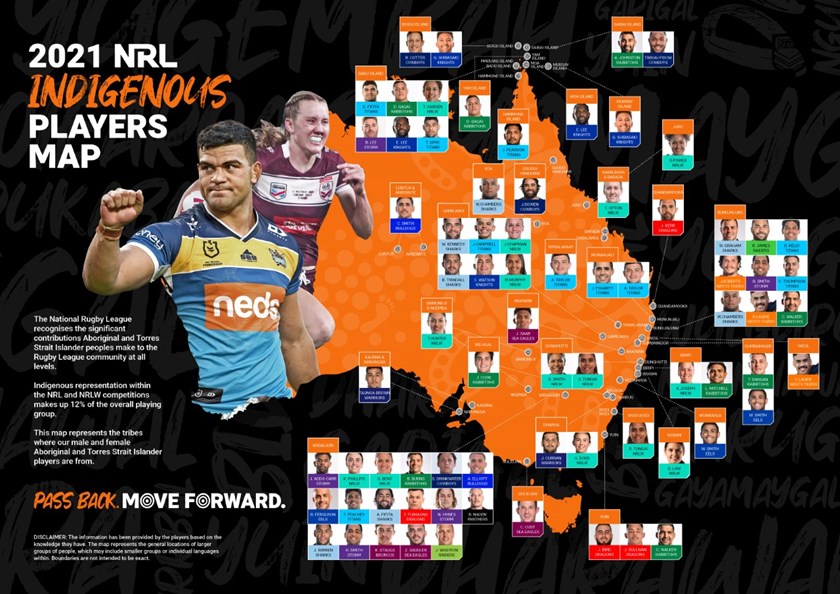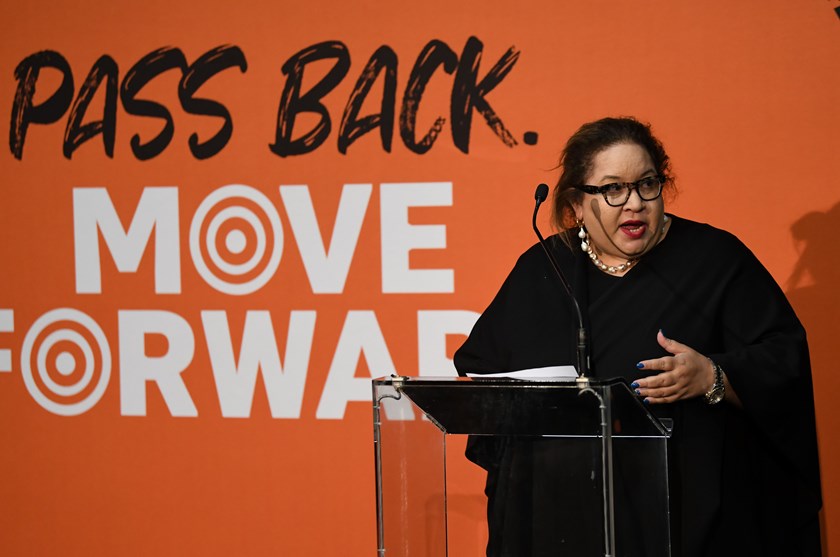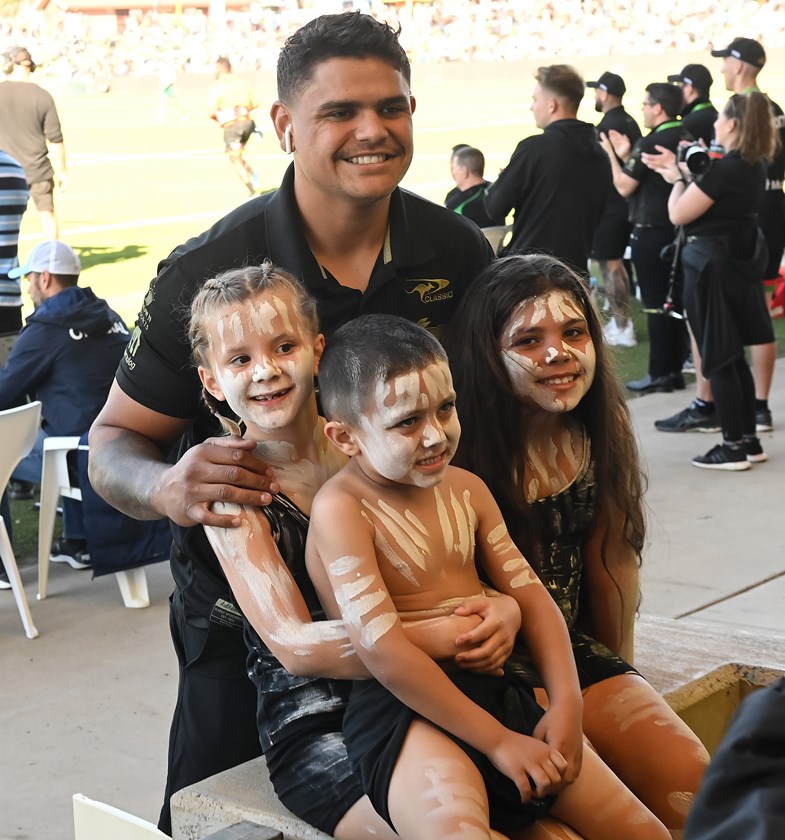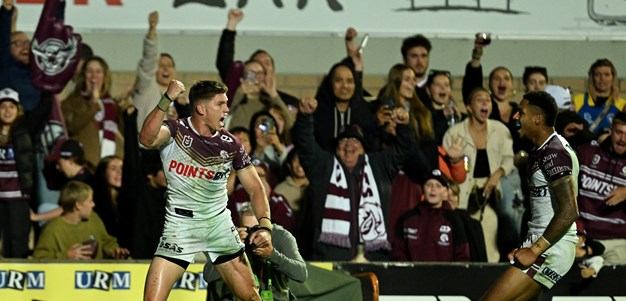Rugby league has been a “bridge builder” between cultures since Indigenous men forced to live under oppressive conditions on Aboriginal reserves embraced the game after its introduction to Australia in 1908.
ARLC commissioner, Professor Megan Davis, a proud Cobble Cobble woman, outlined the historical connection between league and Aboriginal communities during a powerful speech to launch this weekend’s Indigenous Round.
Davis said the game had helped bring First Nations people and “Arrivals” together at a time when racist government policies were trying to destroy Indigenous culture and that relationship had led to 12 per cent of NRL players now being Aboriginal or Torres Strait Islander.
“Australia, as we know, hasn’t always been an inclusive society,” Davis said. “There was a time when Aboriginal and Torres Strait Island people lived under extremely oppressive and draconian restrictions, known as the protection era in Australia – a rather benign term.
“It was an era of compulsory racial segregation where many Aboriginal and Torres Strait Island people, at the same time as Federation started in this country, were herded off Country and moved on to reserves and missions.

“We were restricted most of our freedoms – the freedom to move, the freedom to work, the freedom to marry, the freedom to interact with the rest of our Aboriginal and Torres Strait Island brothers and sisters, and [there were] restrictions on our capacity to perform and practice culture.
“What is really interesting about the game of rugby league is that when it arrived in Australia it was very quickly taken up by Aboriginal men on reserves throughout NSW and in Queensland.
“Aboriginal men played rugby league during this frontier period and it is a really interesting period in Australia’s history of the co-existence of First Nations people and the Arrivals.
‘It is a really important story of reconciliation that isn’t told as much as it should be, and that emphasises for me and many First Nations people the emancipatory potential of rugby league.
“The game has provided many of our people with hope and a sense of freedom during those really restrictive historical times, it bought culture together then and it brings cultures together now.”
Davis said that league contributed significantly to social cohesion in Australia but often did not receive due recognition for the efforts of the game and its’ players to end disparity between Indigenous and non-Indigenous people in education, employment, health and justice.
The overarching theme of this year’s Indigenous Round is Pass Back, Move Forward, with a focus on the 25 per cent gap for Indigenous students completing Year 12 and 26 per cent gap for those in employment.

In comparison, 92 per cent of the 1200 students enrolled in the NRL’s School to Work program for Indigenous youth attain their HSC and 95 per cent of those gain regular employment.
“We will look to get that number closer to 100 per cent in the coming years,” Davis said. “As a game we do bridge communities together and we are breaking down barriers, and we are leading the debate for equality.
“Although those restrictive days of the mission protection era are over there are many manifestations of that unfreedom today, there are many manifestations of that history and a lot of that can be found in the statistics on disadvantage and inequality between our people and the rest of the Australian community.
“Just four per cent of our population are Indigenous but 12 per cent of the NRL playing population is Aboriginal and I am proud to say that our game has and always will over represent when it comes to Aboriginal participation.”

Davis hailed South Sydney superstar Latrell Mitchell as a leader for standing up to racism and encouraging all Australians to feel confident about calling it out, while she said Indigenous players now had a voice in the game.
“It is not so long ago that our people didn’t feel as confident to stand up to racism and I am proud that he feels he has the support to stand up and talk up when he is being attacked by trolls on social media and subjected to racial vilification because it is unlawful behaviour,” she said.
“Rugby league wouldn’t be what it is today without the influence of our Aboriginal and Torres Strait Island players, rugby league is very much a part of Aboriginal DNA and that is why this is one of the most important rounds for the NRL and for the Commission.
“On the field our Indigenous players are superstars – Latrell Mitchell, Cody Walker, David Fifita, Jack Wighton, Blake Ferguson … imagine a game without those names. Imagine rugby league without the great Johnathan Thurston, Greg Inglis or Artie Beetson.
“You cannot picture rugby league without the influence of Indigenous players. They have shaped our history and they are building our future.”


